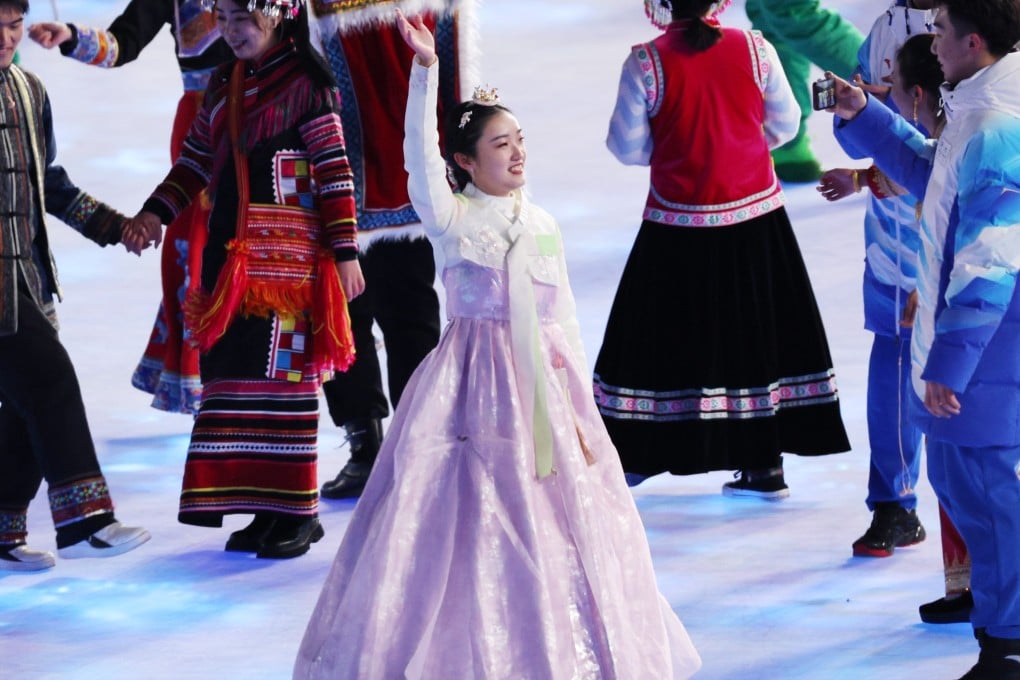‘Don’t covet our culture’: South Korean presidential hopefuls hit out at China for hanbok at Winter Olympics opening ceremony
- The resentment expressed by politicians in South Korea came amid public sensitivity about recent Chinese claims on the internet about parts of Korean culture
- Some saw the reaction as misguided, saying it was clear that the woman in hanbok was representing the estimated 2 million ethnic Koreans living in China

A woman in a white and light purple hanbok dress marched alongside other performers apparently representing China’s various ethnic groups as they carried the Chinese national flag during Friday’s event at Beijing’s National Stadium.

But some South Koreans saw the reaction by their politicians as misguided, saying it was clear that the woman was representing the estimated 2 million ethnic Koreans living in China.
South Koreans see these kingdoms as Korean, but China began to claim them as part of its national history in the early 1980s. Experts say Beijing’s intent was to ideologically support its policies governing ethnic minorities, including the large communities of ethnic Koreans in the northeast, a group the hanbok-wearing performer was apparently representing at the Games’ opening ceremony.
“Do not covet the culture [of others],” Lee Jae-myung, a presidential candidate representing the ruling Democratic Party at the March election, wrote on Facebook hours after the event.